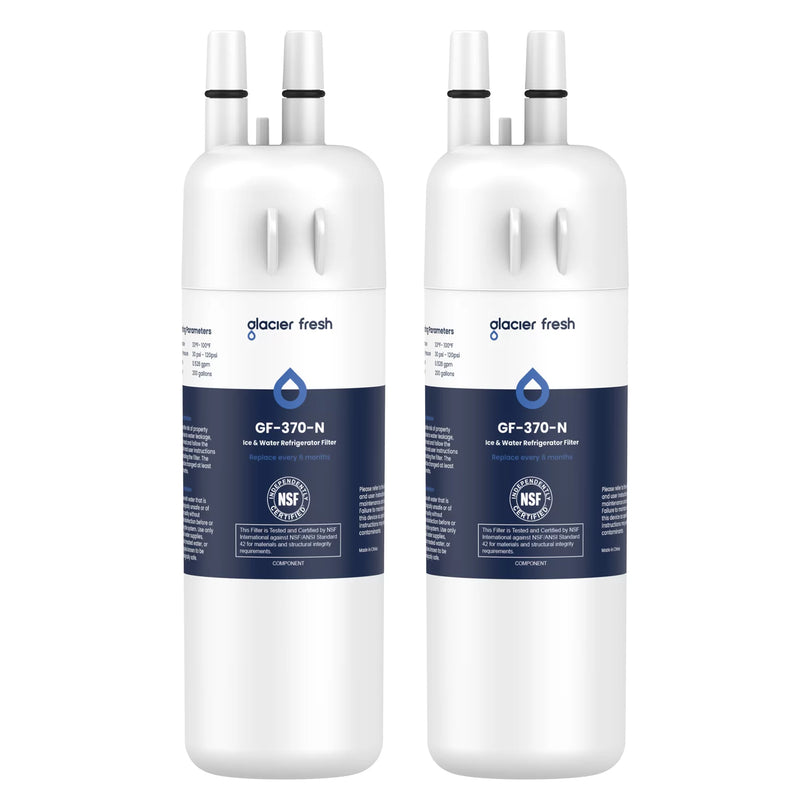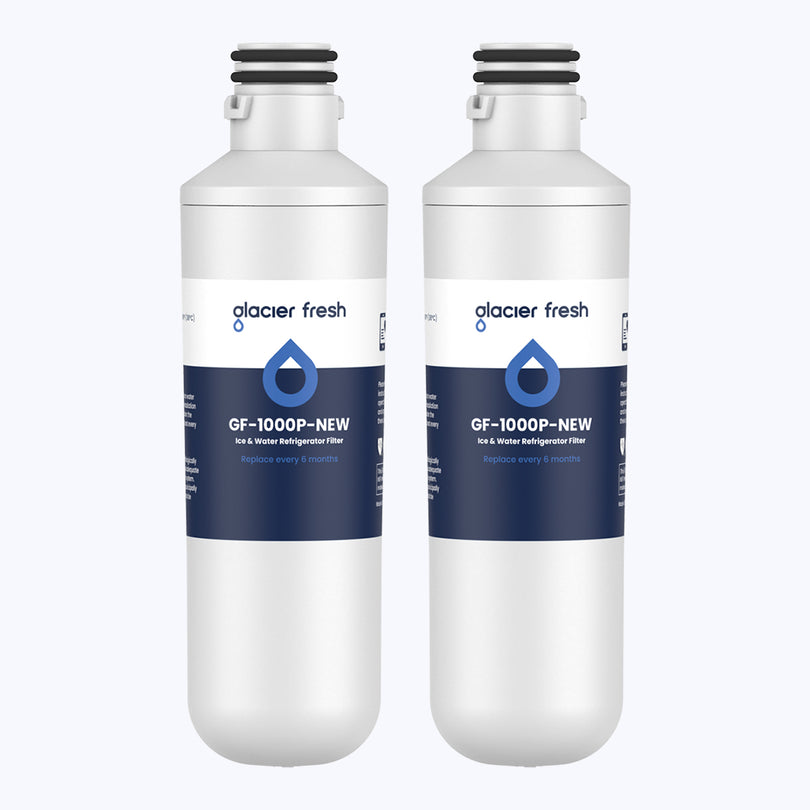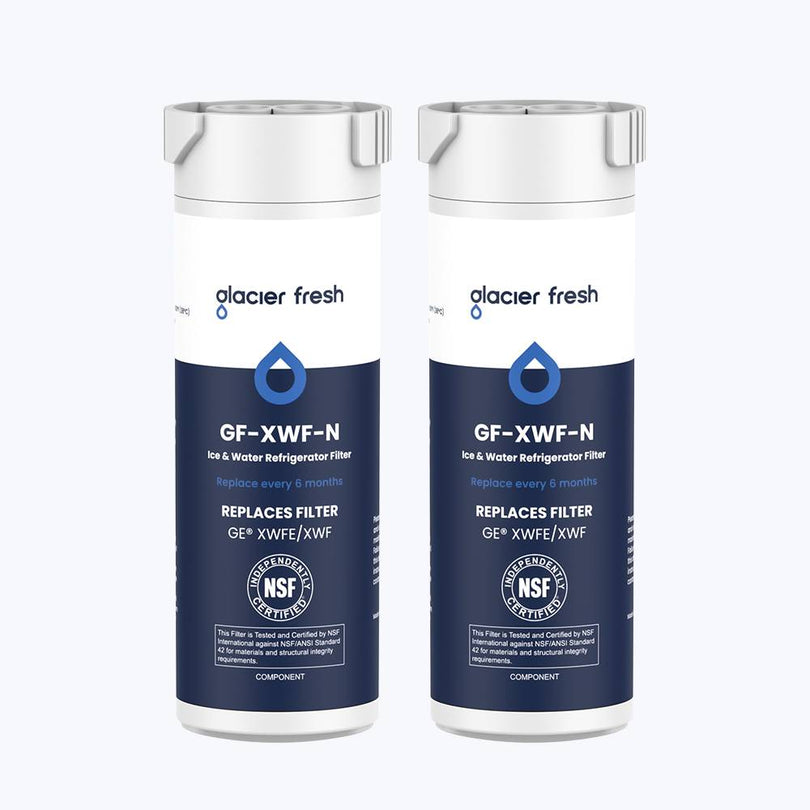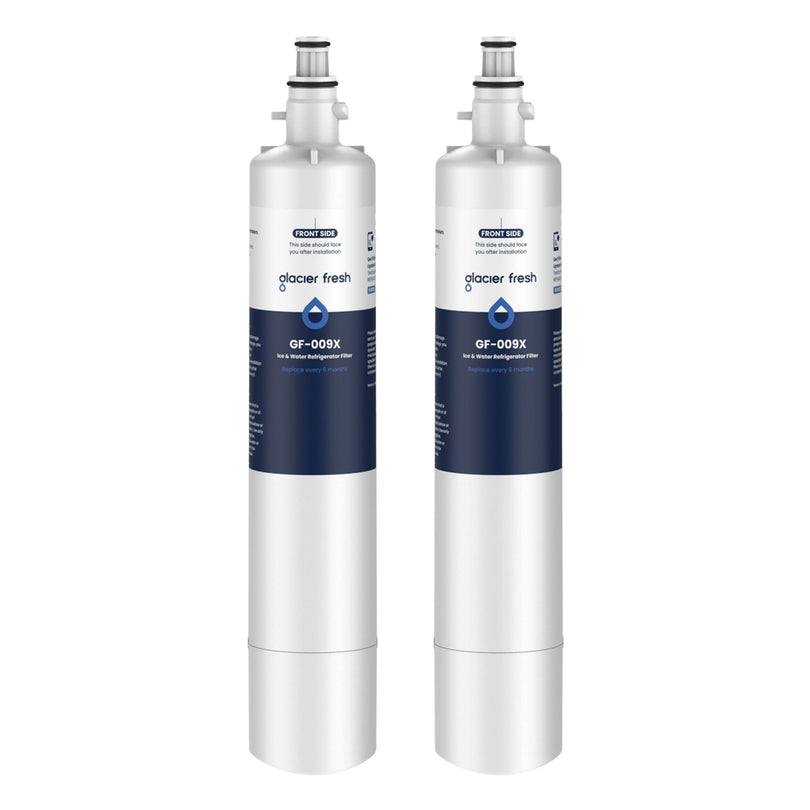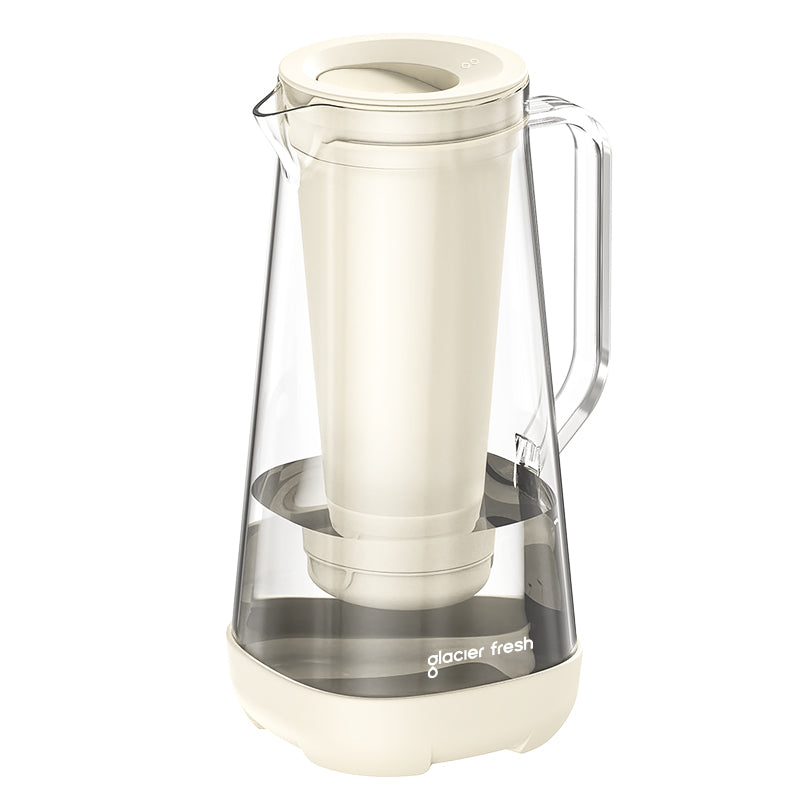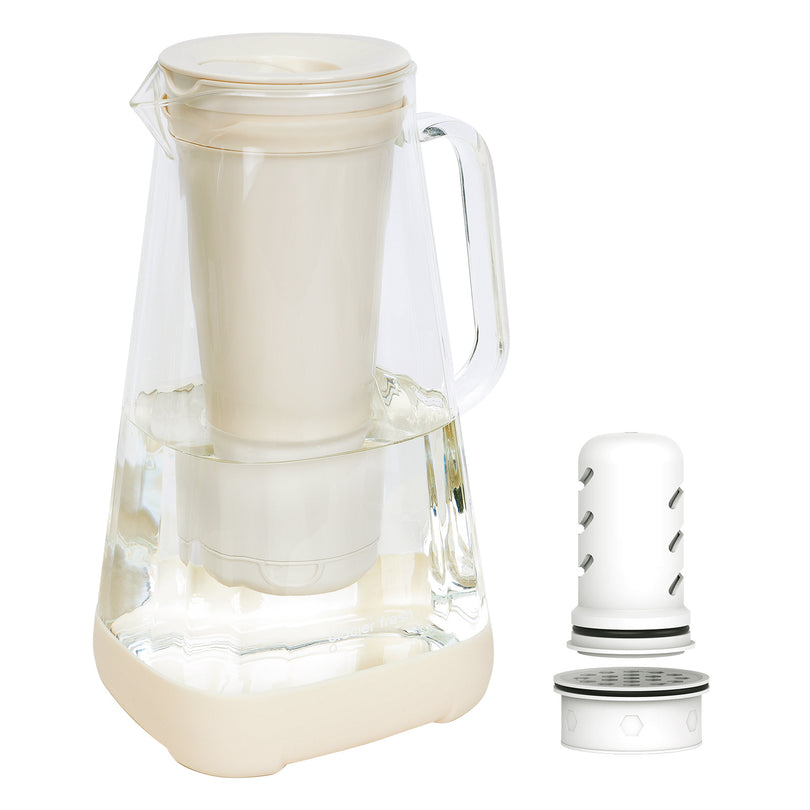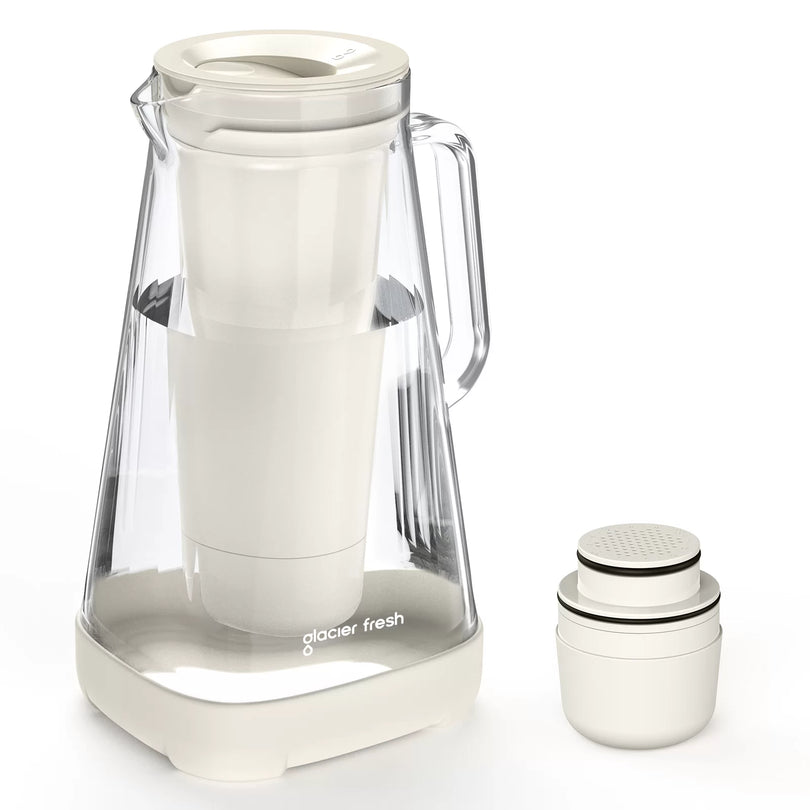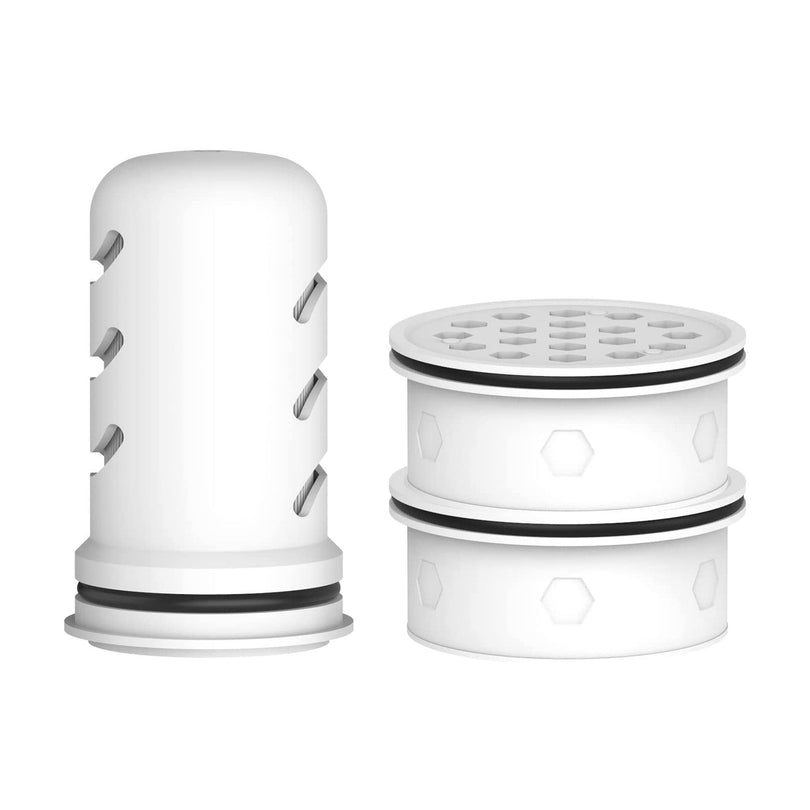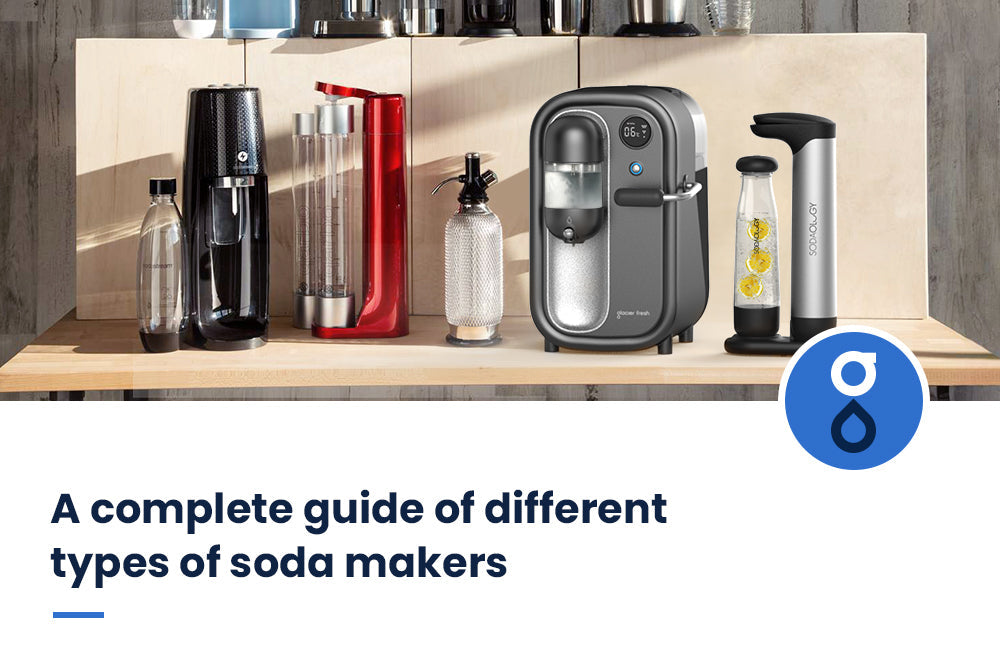Table of Contents:
Kennen Sie die Qualität und Art Ihres Wassers
Identifizieren von Schadstoffen in Ihrem Wasser
Die verschiedenen Arten von Wasserfiltern
Überlegungen zur Auswahl des richtigen Filters
FAQs
Abschluss
Möchten Sie sicherstellen, dass Sie und Ihre Familie Zugang zu sauberem, sicherem Trinkwasser haben? Suchen Sie nach einer Möglichkeit, Schadstoffe aus Ihrem Leitungswasser herauszufiltern? Die Wahl des richtigen Wasserfilters für Ihr Zuhause kann dazu beitragen, dass Ihr Trinkwasser frei von Verunreinigungen ist. In diesem Artikel erfahren Sie, wie Sie die Schadstoffe in Ihrem Wasser identifizieren, die verschiedenen Arten von Wasserfiltern kennenlernen und den richtigen für Ihr Zuhause auswählen. Sie erfahren auch, welcher Filter Schadstoffe am effektivsten herausfiltert. Wenn Sie also bereit sind, die Qualität Ihres Trinkwassers vollständig zu kontrollieren, lesen Sie weiter!
Kennen Sie die Qualität und Art Ihres Wassers

Bevor Sie mit der Suche und dem Kauf eines Wasserfilters für Ihr Zuhause beginnen, müssen Sie die Qualität und Art des Wassers in Ihrer Gegend kennen. Die Identifizierung Ihrer Wasserart und der Verunreinigungen in Ihrer Wasserversorgung ist der erste Schritt bei der Auswahl des richtigen Wasserfiltersystems.
Die verschiedenen Möglichkeiten, die Qualität Ihres Wassers zu testen, hängen davon ab, ob Sie Ihr Wasser aus einer kommunalen Quelle oder einem privaten Brunnen beziehen. Wenn Ihr Wasser aus einer kommunalen Quelle stammt, können Sie auf der Website der Environmental Protection Agency (EPA) jährliche Berichte zur Wasserqualität einsehen . Diese Berichte enthalten eine umfassende Liste der Verunreinigungen in der Wasserversorgung und etwaiger Verstöße gegen die Trinkwasservorschriften. Wenn Sie Wasser aus einem privaten Brunnen beziehen, können Sie Inhalt, Geruch und Geschmack auf Anomalien untersuchen. Besitzer privater Brunnen können auch ein Wasserqualitätstestkit verwenden, um verschiedene Verunreinigungen in ihrer Wasserversorgung zu identifizieren. Diese Kits sind leicht zugänglich, erschwinglich und können detaillierte Informationen über die Qualität Ihres Wassers liefern.
Es ist auch wichtig, die Art des Wassers in Ihrer Gegend zu bestimmen. Es gibt zwei Hauptarten von Wasser: hartes und weiches Wasser. Hartes Wasser enthält einen hohen Anteil an Mineralien wie Kalzium und Magnesium, die Mineralablagerungen auf Oberflächen hinterlassen und die Wirksamkeit von Seife verringern können. Weiches Wasser hingegen enthält weniger Mineralien und wird von vielen Menschen bevorzugt, da es schneller schäumt und die Haut glatter macht. Die Kenntnis Ihrer Wasserart ist entscheidend für die Auswahl des richtigen Wasserfiltersystems für Ihr Zuhause. Wenn Sie beispielsweise hartes Wasser haben, benötigen Sie möglicherweise ein Wasserenthärtungssystem, um überschüssige Mineralien zu entfernen und Mineralablagerungen in Ihren Rohren und Geräten zu verhindern. Wenn Sie hingegen weiches Wasser haben, möchten Sie möglicherweise ein System, das dabei hilft, nützliche Mineralien in Ihrer Wasserversorgung zu erhalten.
Identifizieren von Schadstoffen in Ihrem Wasser

Angenommen, Sie sind besorgt über die Qualität der Wasserversorgung Ihres Hauses. In diesem Fall ist die Identifizierung von Verunreinigungen in Ihrem Wasser ein wichtiger erster Schritt bei der Auswahl des richtigen Wasserfilters für Ihr Zuhause und Ihr Budget.
Um Schadstoffe zu identifizieren, müssen Sie zunächst einen Wasserqualitätsbericht von Ihrem örtlichen Versorgungsunternehmen einholen oder Ihr Wasser professionell testen lassen. Dieser Bericht enthält detaillierte Informationen über die Zusammensetzung Ihres Wassers und mögliche Schadstoffe. Es ist wichtig, sich mit den typischen Wasserschadstoffen vertraut zu machen, die von der Environmental Protection Agency (EPA) reguliert werden. Zu diesen Schadstoffen gehören Nitrate, Arsen, Fluorid, Bakterien, Blei und Chlor.
Sobald Sie Ihren Wasserqualitätsbericht erhalten oder Ihr Wasser testen lassen haben, ist es an der Zeit, die Ergebnisse mit der von der EPA regulierten Liste der Schadstoffe abzugleichen. So können Sie feststellen, welche schädlichen Chemikalien in Ihrem Wasser vorhanden sind. Achten Sie bei der Analyse Ihres Wasserqualitätsberichts oder Ihrer Testergebnisse besonders auf die Bandbreite der Schadstoffe und die getesteten Wassermengen. Dies ist wichtig, da verschiedene Filter darauf ausgelegt sind, unterschiedliche Arten und Konzentrationen von Schadstoffen zu entfernen. Sie können einen Wasserfilter auswählen, der Ihren Anforderungen und Ihrem Budget am besten entspricht, indem Sie die spezifischen Schadstoffe in Ihrem Wasser identifizieren. Es gibt verschiedene Filter, darunter am Wasserhahn montierte Filter, Auftischfilter, Kannenfilter und Wasserfiltersysteme für das ganze Haus. Jeder Filtertyp hat seine eigenen Vor- und Nachteile, und wenn Sie die Zusammensetzung Ihres Wassers kennen, können Sie eine fundierte Entscheidung treffen.
Die verschiedenen Arten von Wasserfiltern
Wasserfilter können grob in Systeme eingeteilt werden: Point of Entry (POE) und Point of Use (POU). Ein POE-System reinigt die Wasserversorgung, wenn sie in Ihr Haus gelangt, und versorgt den gesamten Haushalt mit sauberem Wasser. Ein POU-System hingegen filtert das Wasser an einem bestimmten Verbrauchsort, beispielsweise einem Wasserhahn, einem Waschbecken, einem Duschkopf oder einem Kühlschrank. POU-Filter sind häufiger anzutreffen und günstiger als POE-Systeme. Werfen wir einen Blick auf die verschiedenen Arten von verfügbaren POU-Filtern:
Am Wasserhahn montierte Filter: Wie der Name schon sagt, werden diese Filter direkt an Ihrem Wasserhahn angebracht und bieten eine einfache und effektive Möglichkeit, Ihr Wasser zu reinigen. Diese Filter verwenden normalerweise Aktivkohle oder eine Kombination von Filtern, um Verunreinigungen zu entfernen. Sie sind einfach zu installieren und können bis zu 100 Gallonen Wasser filtern, bevor sie ausgetauscht werden müssen.

Vorteile: Erschwinglich, einfach zu installieren und tragbar.
Nachteile: Begrenzte Kapazität und passt möglicherweise nicht auf alle Wasserhahntypen.
Krugfilter: Diese Filter sind bei denjenigen beliebt, die eine kostengünstige und einfach zu verwendende Filteroption suchen. Der Krug verfügt über ein eingebautes Filtersystem, das das Wasser reinigt, während Sie es in den Krug gießen. Diese Filter verwenden Aktivkohlefilter, die Verunreinigungen entfernen und den Wassergeschmack verbessern.

Vorteile: Erschwinglich, benutzerfreundlich und tragbar.
Nachteile: Begrenzte Kapazität und erfordert häufiges Befüllen und Nachfüllen.
Spülbeckenfilter: Spülbeckenfilter werden direkt an die Wasserleitung unter Ihrem Spülbecken angeschlossen und sorgen für eine zusätzliche Filterung Ihres Wassers. Sie verwenden normalerweise Aktivkohle oder Umkehrosmosetechnologie, um Verunreinigungen zu entfernen.

Vorteile: Liefert sauberes Wasser an eine bestimmte Verbrauchsstelle, hat eine größere Kapazität und ist einfach zu installieren.
Nachteile: Die Installation ist möglicherweise durch einen Fachmann durchzuführen und kann teuer sein.
Auftischfilter: Auftischfilter sind relativ kleine und tragbare Filtersysteme, die direkt an Ihrem Wasserhahn angebracht werden. Diese Filter verwenden Aktivkohle- oder Keramikfilter, um Verunreinigungen aus dem Wasser zu entfernen.

Vorteile: Tragbar, erschwinglich, einfach zu installieren und größere Kapazität als am Wasserhahn montierte Filter.
Nachteile: Nimmt möglicherweise Platz auf der Arbeitsplatte ein und passt möglicherweise nicht zu allen Arten von Wasserhähnen.
Duschfilter: Duschfilter sind speziell dafür konzipiert, Chlor und andere schädliche Chemikalien aus Ihrem Duschwasser zu entfernen. Sie verbessern die Wasserqualität, reduzieren Haarschäden und verhindern Hautreizungen.

Vorteile: Einfach zu installieren, verbessert die Wasserqualität und sicher für alle Hauttypen.
Nachteile: Entfernt nicht alle Verunreinigungen und muss möglicherweise häufig ausgetauscht werden.
Die Wahl des richtigen Wasserfilters für Ihr Zuhause und Ihr Budget hängt von den Verunreinigungen in Ihrem Wasser, Ihrem Wasserverbrauch und Ihren persönlichen Vorlieben ab. Wenn Sie die verschiedenen Arten von Wasserfiltern und ihre Vor- und Nachteile kennen, können Sie eine fundierte Entscheidung treffen, die Ihrem Haushalt sauberes und gesundes Wasser bietet.
Überlegungen zur Auswahl des richtigen Filters
Bei der Auswahl des richtigen Wasserfilters für Ihr Zuhause müssen mehrere wichtige Aspekte berücksichtigt werden. Wenn Sie diese Faktoren berücksichtigen, können Sie sicherstellen, dass Sie einen Filter auswählen, der Verunreinigungen effektiv aus Ihrem Wasser entfernt und Ihnen sauberes, gesundes Trinkwasser liefert.
Die zu filternde Wassermenge
Es kann schwierig sein, herauszufinden, wie viel Wasser Sie filtern müssen. Um sicherzustellen, dass Sie den richtigen Filter für Ihr Zuhause auswählen, sollten Sie die Wassermenge berücksichtigen, die Sie filtern müssen. Sie sollten:
- Berücksichtigen Sie die Wassermenge, die Sie täglich filtern müssen, einschließlich der Anzahl der Badezimmer, der Anzahl der Waschbecken und aller möglichen Wasserquellen im Freien.
- Überlegen Sie, ob Sie Wasser zum Trinken oder zum Duschen und Reinigen filtern möchten.
- Wenn Sie Trinkwasser filtern möchten, wählen Sie einen Filter, der Chlor, Metalle und andere Verunreinigungen herausfiltern kann.
- Berücksichtigen Sie die Größe Ihres Haushalts.
- Ein großer Haushalt benötigt möglicherweise einen Hochleistungsfilter.
Wenn Sie alle diese Faktoren berücksichtigen, können Sie sicherstellen, dass Sie den richtigen Filter für Ihr Zuhause auswählen.
Verunreinigungen in Ihrer Wasserversorgung
Um das optimale Filtersystem auszuwählen, müssen Sie wissen, welche Schadstoffe in Ihrem Wasser vorhanden sind. Jeder Wasserversorger muss jährlich die Schadstoffe in seinem Wasser auflisten, damit Sie diese Informationen leicht abrufen können. Die Schadstoffe können von Bakterien, Viren und anderen Mikroorganismen bis hin zu Chemikalien, Sedimenten und Mineralien reichen. Um sicherzustellen, dass Sie den richtigen Wasserfilter auswählen, müssen Sie unbedingt wissen, welche dieser Schadstoffe in Ihrem Wasser vorhanden sind.

Wartungs- und Ersatzkosten
Die Ermittlung der Wartungs- und Austauschkosten eines Wasserfiltersystems ist für die Budgetplanung und die Sicherstellung der langfristigen Wirksamkeit des Systems von entscheidender Bedeutung. Diese Kosten umfassen den regelmäßigen Filterwechsel, jährliche Wartungsgebühren und mögliche Reparaturen des Systems. Bei der Auswahl eines Filtersystems ist es wichtig, sich über Art und Kosten der Ersatzfilter sowie etwaige jährliche Wartungs- oder Reparaturgebühren zu informieren. Diese Kosten können sich im Laufe der Zeit summieren und variieren je nach Systemtyp und Anzahl der Personen im Haushalt. Wenn Sie sich nach den besten Angeboten umsehen und die Kosten für Wartung und Ersatzteile berücksichtigen, können Sie auf lange Sicht Geld sparen.
Kompatibilität des Wasserfilters
Sie können den besten Wasserfilter für Ihr Zuhause und Ihr Budget auswählen, indem Sie diese grundlegenden Überlegungen berücksichtigen. Mit dem richtigen Filter können Sie schädliche Verunreinigungen aus Ihrem Wasser entfernen und sauberes, gesundes Wasser für sich und Ihre Familie genießen. Damit Ihr Haus so reibungslos läuft wie eine gut geölte Maschine, ist es wichtig, sicherzustellen, dass der Wasserfilter, in den Sie investieren, Ihren Anforderungen entspricht. Wenn Sie sich nach einem Wasserfilter umsehen, müssen Sie überlegen, ob der Filter in Ihr Zuhause passt und zur Größe der Rohre passt. Darüber hinaus sollten Sie den Filtertyp prüfen und sicherstellen, dass er für das von Ihnen verwendete Wasser geeignet ist. Es ist auch wichtig, die Wasserdurchflussrate des Filters zu bestimmen.
Letztendlich kommt es bei der Auswahl des richtigen Wasserfilters für Ihr Zuhause auf Recherche, Kosten und Kompatibilität an. Wenn Sie sich die Zeit nehmen, die oben genannten Faktoren zu berücksichtigen, können Sie auf lange Sicht Zeit, Geld und Energie sparen.
FAQs
Welche Arten von Wasserfiltern gibt es?
Es gibt verschiedene Arten von Wasserfiltern, die jeweils Vor- und Nachteile haben. Zu den gängigsten gehören Aktivkohlefilter, Umkehrosmosefilter und Keramikfilter. Aktivkohlefilter eignen sich hervorragend zum Entfernen von Chlor und anderen Chemikalien, während Umkehrosmosefilter eine Vielzahl von Verunreinigungen sehr effektiv entfernen. Keramikfilter sind eine gute Wahl zum Entfernen größerer Partikel und schädlicher Bakterien.
Wie wartungsintensiv sind Wasserfilter?
Der erforderliche Wartungsaufwand hängt vom gewählten Wasserfilter ab. Manche Filter müssen alle paar Monate gewechselt werden, während andere jahrelang ohne Austausch auskommen. Es ist wichtig, die mit Ihrem Filter mitgelieferten Anweisungen zu lesen und den empfohlenen Wartungsplan einzuhalten, um sicherzustellen, dass er weiterhin effektiv funktioniert.
Verbessert ein Wasserfilter die Qualität meines Wassers?
In den meisten Fällen ja. Ein Wasserfilter kann viele Schadstoffe entfernen, darunter Chlor, Blei und schädliche Bakterien. Er kann auch den Geschmack und Geruch Ihres Wassers verbessern, sodass es angenehmer zu trinken ist.
Abschluss
Zusammenfassend lässt sich sagen, dass die Wahl des richtigen Wasserfilters für Ihr Zuhause entscheidend ist, um Ihrer Familie Zugang zu sauberem Trinkwasser zu gewährleisten. Bei so vielen verschiedenen Optionen kann die Auswahl überwältigend sein. Glücklicherweise können Sie eine fundierte Entscheidung treffen, indem Sie die Qualität Ihres Wassers verstehen, Verunreinigungen identifizieren und sich mit verschiedenen Filtertypen vertraut machen. Eine interessante Tatsache ist, dass der Durchschnittsmensch täglich bis zu 128 Gallonen Wasser zum Trinken, Baden und für andere Aktivitäten verbraucht. Daher stellt die Investition in den richtigen Wasserfilter sicher, dass Ihre Familie in den kommenden Jahren Zugang zu sauberem, sicherem Wasser hat.

